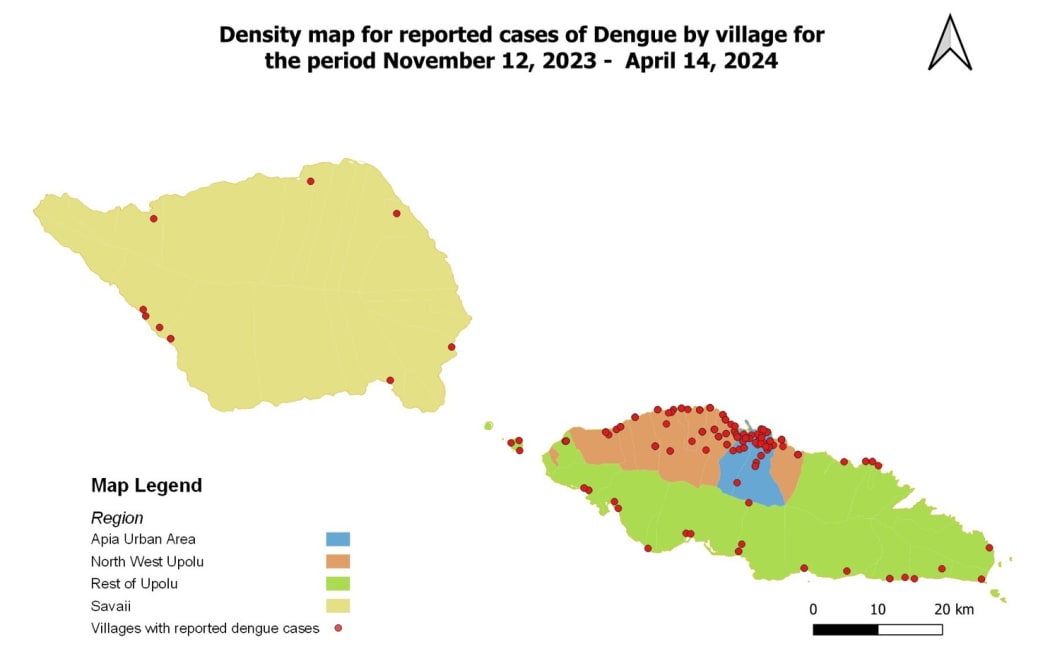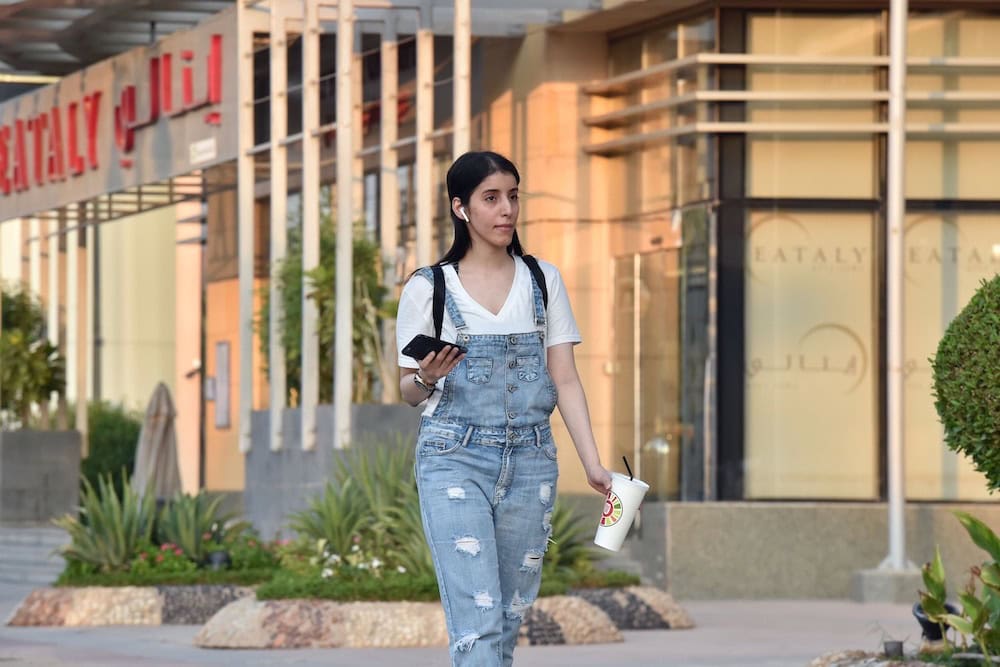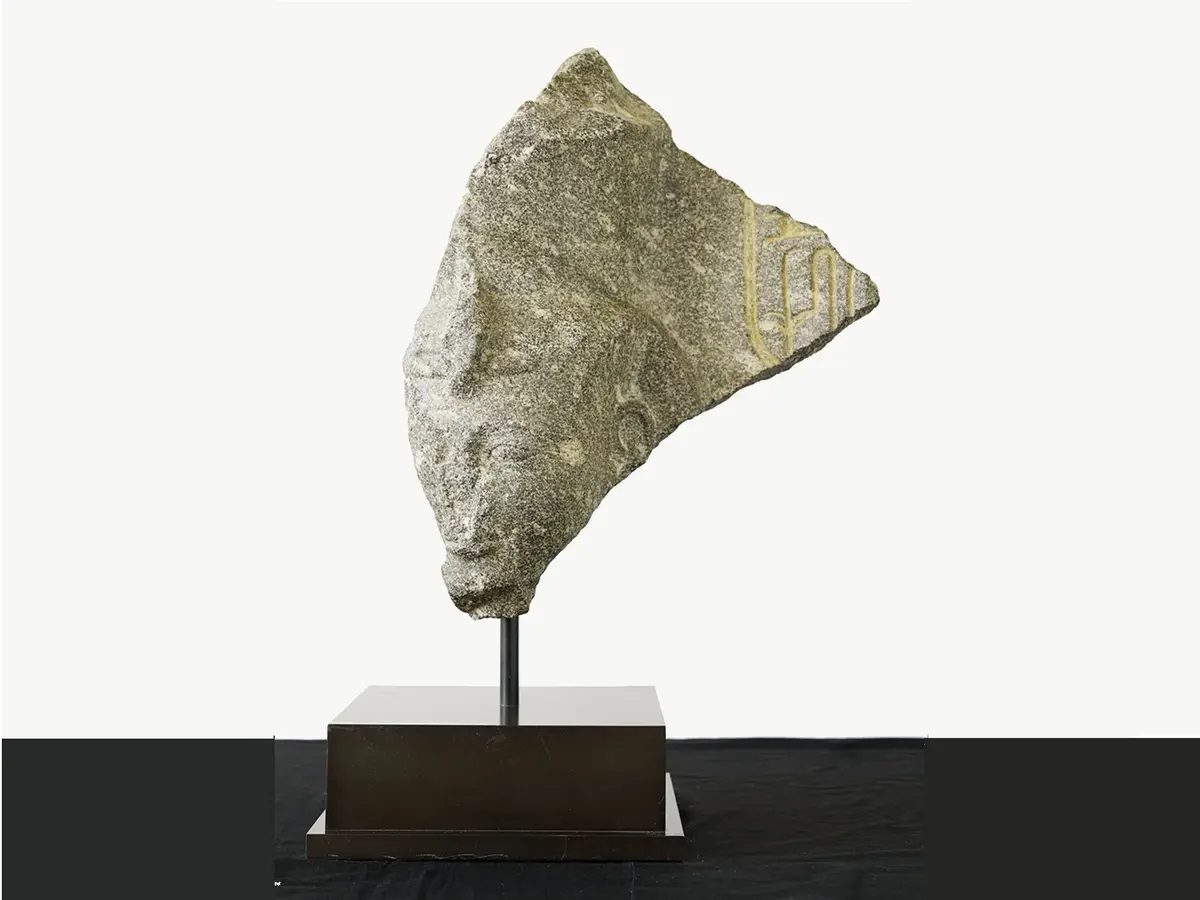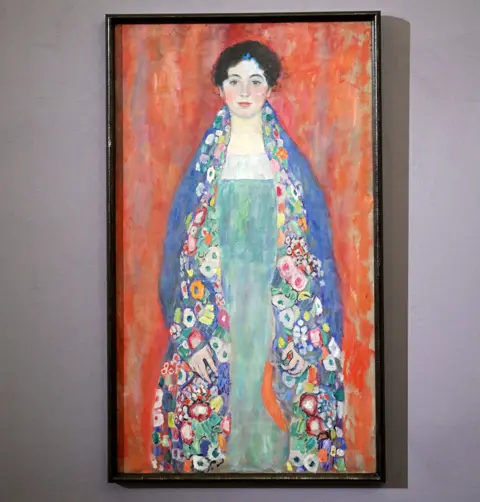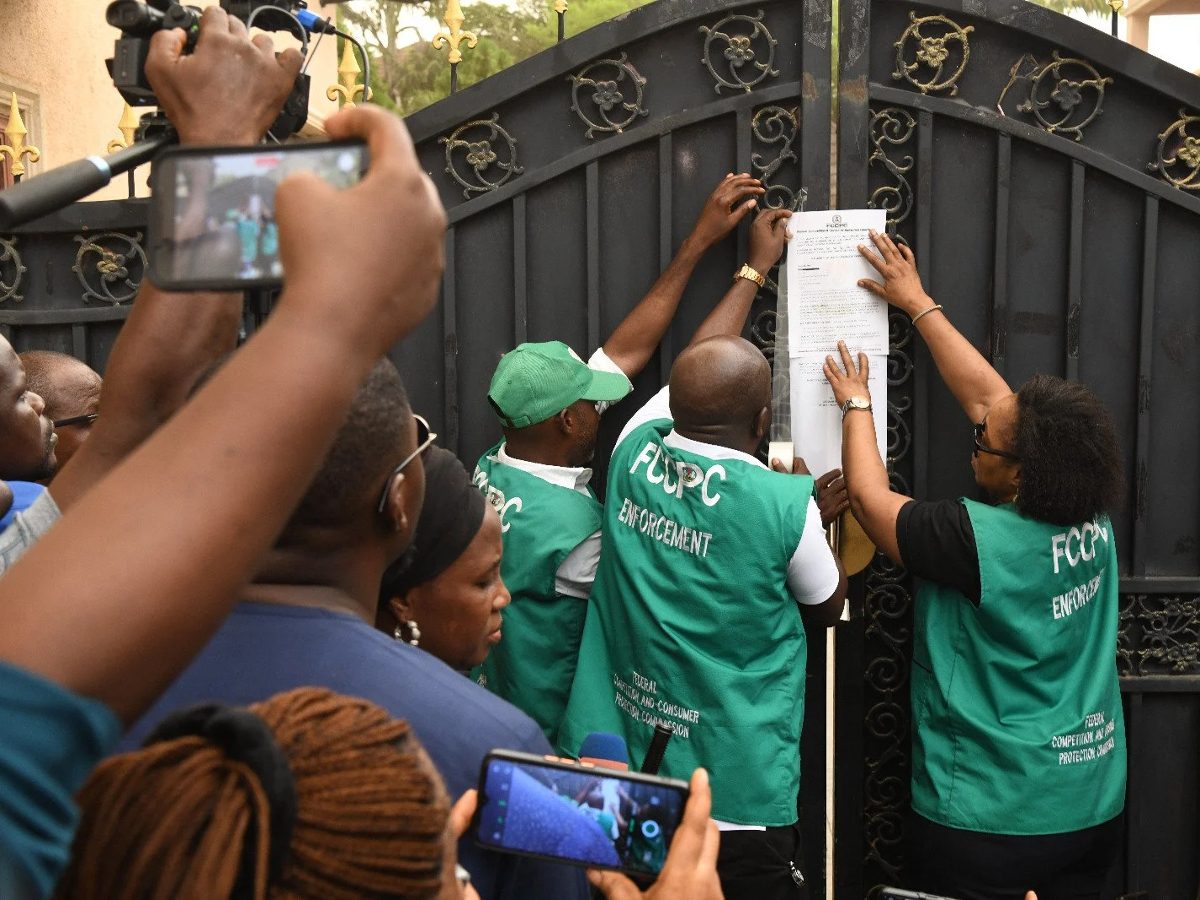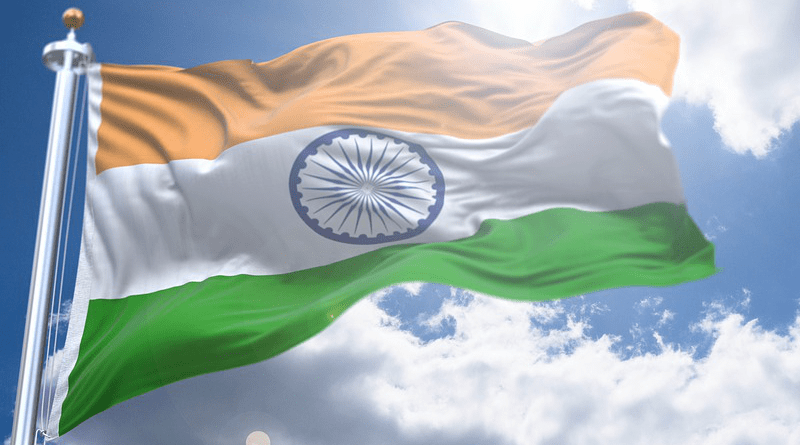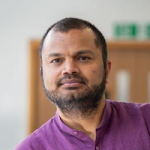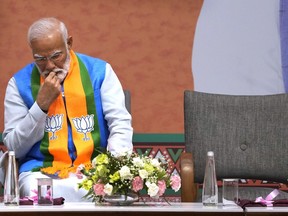
THE STATE OF THE WORLD’S HUMAN RIGHTS
READ THE REPORT
April 24, 2024
Amnesty International sounds alarm on a watershed moment for international law amid flagrant rule-breaking by governments and corporate actors
Powerful governments cast humanity into an era devoid of effective international rule of law, with civilians in conflicts paying the highest price
Rapidly changing artificial intelligence is left to create fertile ground for racism, discrimination and division in landmark year for public elections
Standing against these abuses, people the world over mobilized in unprecedented numbers, demanding human rights protection and respect for our common humanity
The world is reaping a harvest of terrifying consequences from escalating conflict and the near breakdown of international law, said Amnesty International as it launched its annual The State of the World’s Human Rights report today, delivering an assessment of human rights in 155 countries.
Amnesty International also warned that the breakdown of the rule of law is likely to accelerate with rapid advancement in artificial intelligence (AI) which, coupled with the dominance of Big Tech, risks a “supercharging” of human rights violations if regulation continues to lag behind advances.
“Amnesty International’s report paints a dismal picture of alarming human rights repression and prolific international rule-breaking, all in the midst of deepening global inequality, superpowers vying for supremacy and an escalating climate crisis,” said Amnesty International’s Secretary General, Agnès Callamard.
“Israel’s flagrant disregard for international law is compounded by the failures of its allies to stop the indescribable civilian bloodshed meted out in Gaza. Many of those allies were the very architects of that post-World War Two system of law. Alongside Russia’s ongoing aggression against Ukraine, the growing number of armed conflicts, and massive human rights violations witnessed, for example, in Sudan, Ethiopia and Myanmar – the global rule-based order is at risk of decimation.”
Lawlessness, discrimination and impunity in conflicts and elsewhere have been enabled by unchecked use of new and familiar technologies which are now routinely weaponized by military, political and corporate actors. Big Tech’s platforms have stoked conflict. Spyware and mass surveillance tools are used to encroach on fundamental rights and freedoms, while governments are deploying automated tools targeting the most marginalized groups in society.
“In an increasingly precarious world, unregulated proliferation and deployment of technologies such as generative AI, facial recognition and spyware are poised to be a pernicious foe – scaling up and supercharging violations of international law and human rights to exceptional levels,” said Agnès Callamard.
“During a landmark year of elections and in the face of the increasingly powerful anti-regulation lobby driven and financed by Big Tech actors, these rogue and unregulated technological advances pose an enormous threat to us all. They can be weaponized to discriminate, disinform and divide.”
Read more about Amnesty researchers’ biggest human rights concerns for 2023/24.
Amnesty International’s report paints a dismal picture of alarming human rights repression and prolific international rule-breaking, all in the midst of deepening global inequality, superpowers vying for supremacy and an escalating climate crisis.Amnesty International’s Secretary General, Agnès Callamard
Civilians in conflict pay ultimate price as states flout international law
Amnesty International’s report presents a stark assessment of the betrayal of human rights principles by today’s leaders and institutions. In the face of multiplying conflicts, the actions of many powerful states have further damaged the credibility of multilateralism and undermined the global rules-based order first established in 1945.
In a conflict that defined 2023 and shows no sign of abating, evidence of war crimes continues to mount as the Israeli government makes a mockery of international law in Gaza. Following the horrific attacks by Hamas and other armed groups on 7 October, Israeli authorities responded with unrelenting air strikes on populated civilian areas often wiping out entire families, forcibly displacing nearly 1.9 million Palestinians and restricting the access of desperately needed humanitarian aid despite growing famine in Gaza.
The report points to the USA’s brazen use of its veto to paralyse the UN Security Council for months on a much-needed resolution for a ceasefire, as it continues to arm Israel with munitions that have been used to commit what likely amounts to war crimes. It also highlights the grotesque double standards of European countries such as the UK and Germany, given their well-founded protestations about war crimes by Russia and Hamas, while they simultaneously bolster the actions of Israeli and US authorities in this conflict.
What we saw in 2023 confirms that many powerful states are abandoning the founding values of humanity and universality enshrined in the Universal Declaration of Human Rights.Agnès Callamard
“The confounding failure of the international community to protect thousands of civilians – a horrifically high percentage of them children – from being killed in the occupied Gaza Strip makes patently clear that the very institutions set up to protect civilians and uphold human rights are no longer fit for purpose. What we saw in 2023 confirms that many powerful states are abandoning the founding values of humanity and universality enshrined in the Universal Declaration of Human Rights,” said Agnès Callamard.
The report also documents flagrant rule-breaking by Russian forces during their continued full-scale invasion of Ukraine. It highlights indiscriminate attacks on densely populated civilian areas, as well as energy and grain export infrastructure; and the use of torture or other ill-treatment against prisoners of war. This is in addition to vast environmental contamination through acts including the apparently deliberate destruction of the Kakhovka dam which is widely believed to have been committed by Russian forces.
Myanmar’s military and associated militias also conducted attacks against civilians resulting in over 1,000 civilian deaths in 2023 alone. Neither the Myanmar military nor the Russian authorities have committed to investigating reports of glaring violations. Both have received financial and military support from China.
In Sudan, both warring parties, the Sudan Armed Forces and the Rapid Support Forces, have demonstrated little concern for international humanitarian law as they carried out targeted and indiscriminate attacks that have killed and injured civilians, and launched explosive weapons from densely populated neighbourhoods killing 12,000 people in 2023. This has triggered the largest displacement crisis in the world with more than 8 million people forced to flee. With no end to the conflict in sight, the hunger crisis that has gripped Sudan for months is now dangerously close to turning into famine.
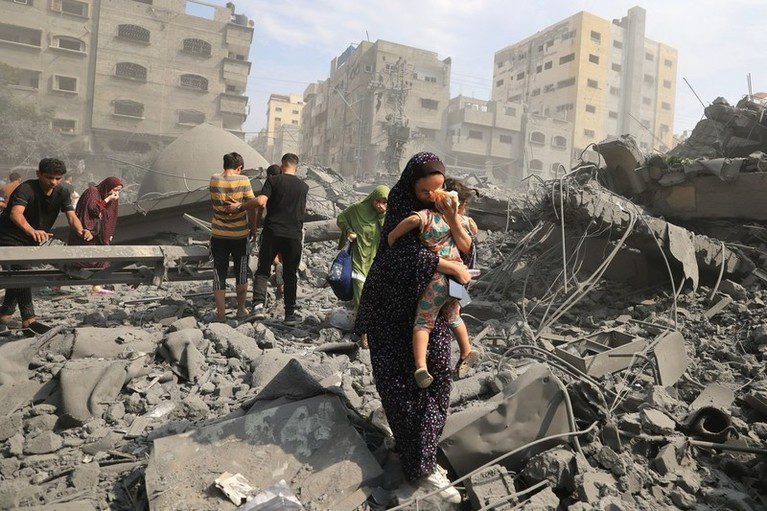
© MAHMUD HAMS/AFP via Getty Images

© GENYA SAVILOV/AFP via Getty Images
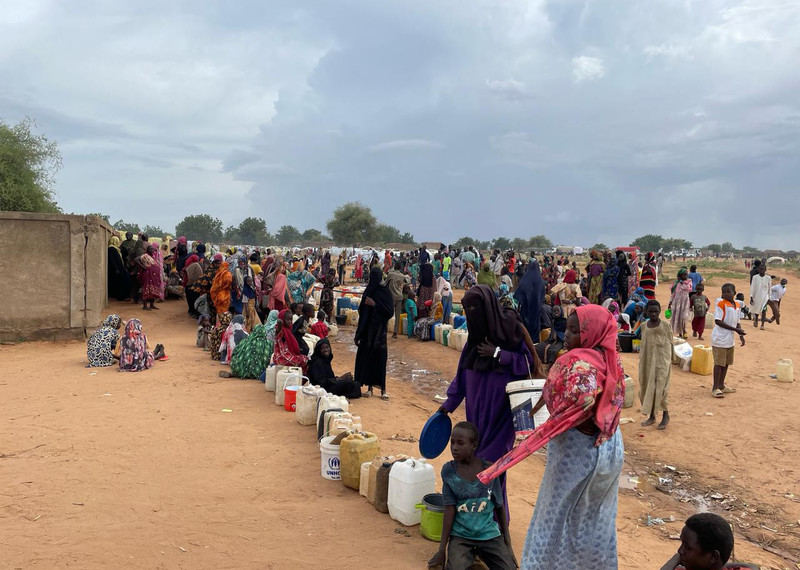
© Amnesty International
Tech wielded to stoke hate, division and discrimination poses threat in landmark year of elections
Amnesty International found that political actors in many parts of the world are ramping up their attacks on women, LGBTI people and marginalized communities who have historically been scapegoated for political or electoral gains. New and existing technologies have increasingly been weaponized to aid and abet these repressive political forces to spread disinformation, pit communities against each other and attack minorities.
The report also points to the expansive use of existing technologies to entrench discriminatory policies. States including Argentina, Brazil, India and the UK have increasingly turned to facial recognition technologies to police public protests and sporting events and discriminate against marginalized communities – particularly migrants and refugees. For example, in response to legal action by Amnesty International, the New York Police Department revealed in 2023 how it used the technology to subject Black Lives Matter protests in the city to surveillance.
The nefarious use of facial recognition was no more pervasive than in the West Bank of the Occupied Palestinian Territories where it was used by Israel to reinforce restrictions on freedom of movement and help maintain the system of apartheid.
In Serbia, the introduction of a semi-automated social welfare system resulted in thousands of people losing access to vital social assistance. This particularly affected Roma communities and people with disabilities, demonstrating how unchecked automation can exacerbate inequality.
With millions fleeing conflicts around the world, the report notes how abusive technologies were relied upon for migration governance and border enforcement, including through use of digital alternatives to detention, border externalization technologies, data software, biometrics and algorithmic decision-making systems. The proliferation of these technologies perpetuates and reinforces discrimination, racism, and disproportionate and unlawful surveillance against racialized people.
Meanwhile, spyware has remained largely unregulated, despite the long-term evidence of the human rights violations it drives, with activists-in-exile, journalists and human rights defenders usually among those targeted. In 2023, Amnesty International uncovered the use of Pegasus spyware against journalists and civil society activists in countries including Armenia, the Dominican Republic, India and Serbia, while EU-based and regulated spyware was freely sold to states the world over.
Big Tech’s surveillance business model is pouring fuel on this fire of hate, enabling those with malintent to hound, dehumanize and amplify dangerous narratives to consolidate power or polling.Agnès Callamard
Over the past year the rapid trajectory of generative AI, has transformed the scale of the threat posed by the gamut of technologies already in existence – from spyware to state automation and social media’s run-away algorithms.
In the face of rapacious advancements, regulation has largely remained stagnant. However, in a sign that European policymakers are beginning to act, a landmark EU-wide Digital Services Act came into force in February 2024. While imperfect and incomplete, it has nevertheless triggered a much-needed global debate on AI regulation.
“There is a vast chasm between the risks posed by the unchecked advancement of technologies, and where we need to be in terms of regulation and protection. It’s our future foretold and will only worsen unless the rampant proliferation of unregulated technology is curtailed,” said Agnès Callamard.
Amnesty International exposed how Facebook’s algorithms contributed to ethnic violence in Ethiopia in the context of armed conflict. This is a prime example of how technology is weaponized to pit communities against each other, particularly in times of instability.
The human rights organization forecasts that these problems will escalate in a landmark election year, with the surveillance-based business model underpinning major social media platforms such as Facebook, Instagram, TikTok and YouTube acting as a catalyst for human rights violations in the context of elections.
“We’ve seen how hate, discrimination and disinformation are amplified and spread by social media algorithms optimized to maximize ‘engagement’ above all else. They create an endless and dangerous feedback loop, particularly at times of heightened political sensitivity. Tools can generate synthetic images, audio and video in seconds, as well as target specific audience groups at scale, but electoral regulation has yet to catch up with this threat. To date we’ve seen too much talk with too little action,” said Agnès Callamard.
In November, the US presidential election will take place in the face of increasing discrimination, harassment and abuse on social media platforms towards marginalized communities including LGBTI people. Threatening and intimidating anti-abortion content has also become rife.
About a billion people are voting in India’s election this year against a backdrop of attacks on peaceful protesters and systematic discrimination against religious minorities. In 2023 Amnesty International revealed that invasive spyware had been used to target prominent Indian journalists, and more broadly tech platforms have become political battlefields.
“Politicians have long used manipulation of ‘us vs. them’ narratives to win votes and outmanoeuvre legitimate questions about economic and security fears. We’ve seen how unregulated technologies, such as facial recognition, have been used to entrench discrimination. Coupled with this, Big Tech’s surveillance business model is pouring fuel on this fire of hate, enabling those with malintent to hound, dehumanize and amplify dangerous narratives to consolidate power or polling. It’s a chilling spectre of what’s to come as technological advances rapaciously outpace accountability,” said Agnès Callamard.
Unregulated tech: supercharges human rights violations
1. EXACERBATING INEQUALITIES
Governments are using technology to reinforce discriminatory policies that exacerbate racial and other inequalities.
2. UNDERMINING THE RIGHT TO PEACEFUL PROTEST
Governments are deploying mass video surveillance, secretly using biometric and facial recognition software and intercepting private communications to curtail peaceful protest.
3. FUELLING ONLINE HATE
Major social media platforms operate surveillance-based business models which can act as a catalyst for human rights violations in contexts such as elections.
LAWMAKERS MUST PRIORITISE HUMAN RIGHTS IN TECH REGULATION
Governments should take robust legislative and regulatory steps to address the risks and harms caused by misuse of technology.
Unprecedented global mobilization
“We’ve seen the actions of powerful state and non-state actors cast us deeper into the chaos of a world without effective rules, where ruthless profit-making from revolutionary technologies without effective governance has become the norm. But where many governments have failed to abide by international law, we have also seen others calling on international institutions to implement the rule of law. And where leaders the world over have failed to stand up for human rights, we have seen people galvanized to march, protest and petition for a more hopeful future,” said Agnès Callamard.
The Israel-Hamas conflict sparked hundreds of protests worldwide. People demanded a ceasefire to end the staggering suffering of Palestinians in Gaza, as well as the release of all hostages taken by Hamas and other armed groups, long before many governments did. Elsewhere, people took to the streets of the USA, El Salvador and Poland to demand the right to abortion as the backlash against gender justice took hold. Across the globe thousands joined youth-led movement Fridays For Future to call for the fair and fast phase-out of fossil fuels.
Tireless campaigning also led to a number of significant human rights wins in 2023. Following advocacy by Taiwan’s #MeToo movement and other civil society organizations to end online sexual violence, the government passed an amendment to Taiwan’s “Sexual Assault Crime Prevention Act”.
People have made it abundantly clear that they want human rights; the onus is on governments to show that they are listening. Agnès Callamard
Despite falling short of what was needed, COP28 agreed to “transition away” from fossil fuels marking the first time that fossil fuels had been mentioned in a COP decision. In the wake of years of campaigning, four human rights defenders in the Buyukada case – Taner Kılıç, İdil Eser, Özlem Dalkıran and Günal Kurşun, who were convicted in July 2020 on baseless charges – were finally acquitted in Turkey.
In one of many examples, Afghan education activist Matiullah Wesa was released last October after months of campaigning. He spent nearly seven months in prison for promoting girls’ right to education and criticizing the Taliban’s policy banning girls from seeking secondary education.
“The right to protest is critical to shining a light on abuses and on leaders’ responsibilities. People have made it abundantly clear that they want human rights; the onus is on governments to show that they are listening,” said Agnès Callamard.
“Given the grim global state-of-play, urgent measures are required to revitalize and renew the international institutions intended to safeguard humanity. Steps must be taken to reform the UN Security Council so that permanent members cannot wield their veto power unchecked to prevent the protection of civilians and bolster their geopolitical alliances. Governments must also take robust legislative and regulatory steps to address the risks and harms caused by AI technologies and reign in Big Tech.”

